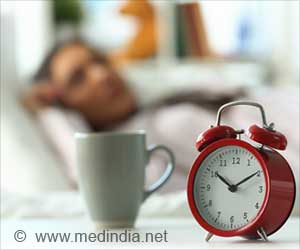New study suggests that there is an independent relationship between the intensity of snoring sounds and sleepiness.
A new study has shown that there's an independent relationship between the intensity of snoring sounds and sleepiness.
The study showed that objectively measured snoring intensity is directly linked to subjective sleepiness independent of the apnea-hypopnea index (AHI) in patients with moderate to severe obstructive sleep apnea (OSA).The study is the first to use polysomnography and sound measurements to demonstrate the relationship between snoring sounds and sleepiness.
It has revealed that the sound intensity of objectively measured snoring in patients with OSA is independently correlated with subjective sleepiness as measured by the Epworth Sleepiness Scale (ESS).
Also, the research revealed that subjective sleepiness is better explained by snoring intensity than by AHI.
A 22 percent variance in ESS scores was influenced by independent variables such as snoring intensity, desaturation severity, daily sleep time, subjective snoring frequency and nasal obstruction symptoms.
However, snoring intensity and AHI could together explain only 15 percent of the variance in ESS scores.
Advertisement
"The results were not so surprising, because previous studies in general population have shown an independent relationship between the degree of snoring, by a questionnaire, and sleepiness," said Nakano.
Subjective sleepiness was assessed using the ESS, and snoring intensity was assessed using the highest one percentile ambient sound-pressure level attained while asleep during PSG.
The scientists placed the patients into groups of non-to-mild OSA (AHI less than 15) and moderate-to-severe OSA (AHI greater than 15), so that they could clarify the effect of OSA severity on the relationship between snoring intensity and sleepiness in subsequent analyses.
According to the findings, snoring intensity is significantly correlated with age, body mass index (BMI) and AHI. Insufficient sleep in daily life was taken into consideration as a possible cofounder, as it may enhance snoring intensity and sleepiness.
While sleepiness is one of the most important symptoms of OSA, the researchers found that the correlation between the degree of sleepiness and the severity of OSA was relatively weak in many studies.
As objectively measured snoring is linked to sleepiness independent of OSA, the authors concluded that quantitative measurements of snoring are desirable in ordinary sleep studies.
The study is published in the latest issue of the Journal of Clinical Sleep Medicine.
Source-ANI
PRI/S















